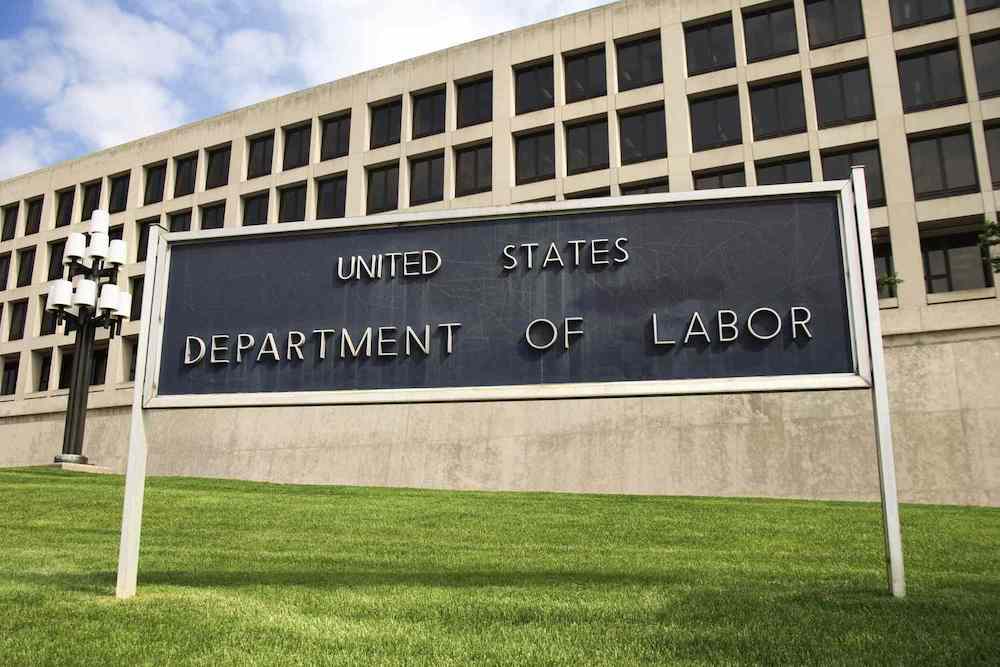

Brookings: Native communities in Oklahoma stand to lose $3 billion from proposed funding freeze

Oklahoma’s Native American communities could lose $3 billion in funding for essential services due to the Trump administration’s proposed mass grant freeze, according to a new report.
By Thomas Pablo, KOSU
The report, authored by the think tank Brookings Institution, says Native communities nationwide could lose $24.5 billion in total – temporarily or permanently. Oklahoma would be among the most affected states, ranking only behind Arizona.
The federal government is obligated to issue funding to tribes annually because of treaties and legally binding agreements dating to the United States’ infancy. Since 2018, the U.S. has provided around $93 billion in grants and cooperative agreements for more than 1,700 tribal governments and Native-owned businesses and non-profits, according to Brookings.
In January, Trump’s Office of Management and Budget ordered a halt on all federal grants, throwing trillions of dollars into question.
The administration claimed the freeze would be temporary and would only impact entities that violated executive orders targeting federally-funded diversity programs, climate initiatives and other programs not in line with the Trump White House’s policy agenda.
But the White House quickly rescinded the order, which awaits consideration from a federal appeals court in New York v. Trump. That case will determine whether such executive orders violated federal law. A ruling in Trump’s favor could violate historical treaties, according to Brookings.
“When the federal government withholds funding from Tribes and Native American people, it’s not just a policy change,” the report authors wrote. “It’s a violation of those commitments – putting essential services at risk and undermining Tribal governing capacity.”

Tribal job training programs face major changes as House takes up Labor budget this week

By Chez Oxendine, Tribal Business News
Cherokee Nation citizen Lauren Smith worked two minimum wage jobs in her early adulthood, just to afford a small apartment in Owasso, Okla. She realized she needed a change when she had her son — spending so much time at work meant he would end up “raising himself,” Smith said.
Career development services from Cherokee Nation, including career counseling and help getting her GED, allowed Smith to land a steady job as a receptionist at an Owasso clinic. The work is stable and she enjoys it. She would never have gotten it without that support, she told Tribal Business News.
‘They walked me through everything, and that meant I didn't have to struggle with it on my own while working two jobs and trying to raise a kid,” Smith said. “I didn't have to pay for it, I had good guidance and advice, and now I'm doing work I never thought I'd be able to do.”
But future Native jobseekers could find that kind of support harder to access under the Trump administration’s proposed budget that Congress will be debating this week. Cherokee Nation, like many tribes and Native-serving organizations, depends on funding from the Department of Labor's Division of Indian and Native American Programs (DINAP), which administers the native American Employment and Training Program under Section 166 of the Workforce Innovation and Opportunity Act (WIOA).
The administration’s budget calls for eliminating Section 166 and folding its funding into a new “Make America Skilled Again” (MASA) block grant. The proposal would consolidate 11 federal workforce programs — including those targeted to youth, dislocated workers, and Native Americans — into a single pool of funds controlled by the states.
While the programs wouldn't be eliminated entirely, critics argue that folding Native-specific funding into state-controlled block grants would effectively end dedicated tribal workforce services and remove culturally competent support.
Over the past five years, DINAP has funded roughly 40,000 to 50,000 participants annually, with combined adult and youth awards rising from approximately $58 million in 2020 to over $73 million in 2025, according to the program’s website. Under the MASA proposal, total WIOA funding would shrink from $3.9 billion to $2.97 billion, slashing nearly $1 billion in workforce investments, according to the National Association of Workforce Boards.
Oklahoma oil and gas regulator dismisses environmental authority of Cheyenne and Arapaho Tribes

After the Cheyenne and Arapaho Tribes established their Environmental Protection Commission, they asserted environmental oversight over their lands. The Oklahoma Corporation Commission is intervening.
By Sarah Liese (Twilla), KOSU
The Oklahoma Corporation Commission, or OCC, obtained a copy of a letter sent by the Cheyenne and Arapaho Tribes, addressing all oil and gas operators operating within the tribal nation’s territory, stating that they have environmental regulatory authority over these lands. It noted that the tribal nation’s newly established Environmental Protection Commission can inspect oil and gas facilities, monitor air and water quality and enforce environmental regulations on their lands, such as the Clean Water Act and the Clean Air Act.
“Failure to comply with applicable laws, regulations, and Commission directives may result in the assessment of fines, issuance of enforcement actions or other remedial measures as deemed necessary by the EPC to protect the health, welfare and natural resources of the Cheyenne and Arapaho Tribes,” the letter stated.
The letter referenced three bills that were passed this year in the tribal nation’s legislature and signed by Governor Reggie Wassana. Those include the Clean Air Quality Act of 2025, the Clean Water Act of 2025 and the Environmental Quality Act of 2025.
However, Corporation Commissioner Brian Bingman said in an OCC press release that oil and gas operators do not need to worry about the Cheyenne and Arapaho’s environmental oversight, saying: “The agency is moving forward with business as usual.”
“We always look for ways to work collaboratively with our tribal partners when appropriate, but as it sits today, the Cheyenne and Arapaho Tribes do not have the proper ‘Treatment as a State’ designation by the federal government required to claim and execute this regulatory function,” Binger said in the press release.
Earthjustice attorney Mike Freeman explained the designation called Treatment as a State, or TAS, occurs when a tribal nation applies to the EPA to obtain authority, similar to that of a state, to operate and administer environmental programs and conduct permitting on their lands, such as for the Clean Air Act. However, getting TAS status is extremely difficult for tribal nations in Oklahoma, stemming from a midnight rider that was tacked onto a transportation appropriations bill 20 years ago by former Republican Senator Jim Inhofe.
“Because of The Midnight Rider, Oklahoma basically has a veto over tribes getting treatment as a state,” Freeman said.
Freeman elaborated that this rider limited tribal nations' efforts to obtain TAS status because it requires them to reach a Memorandum of Understanding with the state in order to get a TAS designation. The 2005 rider also allowed the state to gain more environmental control over tribal lands.
“The other thing that the midnight rider did was to say that if Oklahoma already has delegated authority to administer, say, a Clean Water Act program or any federal environmental program on non-tribal lands, the state can go to EPA and seek authority to also run that program on tribal lands,” Freeman said. “They can basically take over environmental permitting on tribal lands, even though they normally would not have any jurisdiction over those lands.”
Following the landmark McGirt decision, Gov. Kevin Stitt submitted a request to the EPA to essentially take over environmental programs on --- Indian lands that were reaffirmed in the McGirt ruling. His request was granted by the Trump administration and remains in effect today.
“Nowhere else in the country would a state have been able to do that,” Freeman said. “But because of the special midnight rider, Oklahoma was granted that authority.”
KOSU reached out to the Cheyenne and Arapaho Tribes for a comment, but did not hear back at the time of this publication.
Comanche Red River Hotel Casino to Open New Steakhouse

DEVOL, Okla. – Comanche Red River Hotel Casino will debut Oklahoma’s newest dining option, The Chop House at Red River, on Thursday, July 24. The upscale steakhouse will serve USDA Prime and Choice Beef and feature a partnership with The Rusty Nail Winery, a Tribal and women-owned winery based in Sulphur, Oklahoma.
“This partnership goes beyond great food and wine. It’s about supporting the people that make up our community,” said Julius Kazen, Director of Non-Gaming at Comanche Nation Entertainment. “The opportunity to highlight a local business while giving our guests an experience that is both meaningful and memorable, is what Comanche Nation Entertainment is all about.”
The storefront of The Rusty Nail Winery was destroyed by a tornado in 2024, so the partnership is intended to help rebuild and restore the local winery.
In addition, one of the winery’s special edition labels was designed by the owner’s daughter, who was born with half a heart and underwent three surgeries before age two. For each bottle of that particular wine sold, $2 of the purchase is donated to a foundation supporting heart research.
“The Chop House at Red River will bring a high-quality, elevated experience to our guests,” said Sterling Ticeahkie, general manager of Comanche Red River Hotel Casino. “As we continue to expand our offerings, it is a priority for us to partner with local businesses that reflect our shared values.”
In addition to premium steaks, the restaurant will feature a variety of fish and poultry, unique soups, desserts and special surprising service amenities. Guests will also be able to enjoy a curated selection of wines from The Rusty Nail Winery, which includes exclusive, locally made tastings.
The Chop House at Red River opens on July 24 and will be open from 5 to 9 p.m. on Thursdays and from 5 to 10 p.m. on Fridays and Saturdays. For reservations, please call 580-250-3066.
For more information about The Rusty Nail Winery, visit www.rustynailwinery.com.
For more information about Comanche Red River Hotel Casino, visit www.comancheredrivercasino.com.






